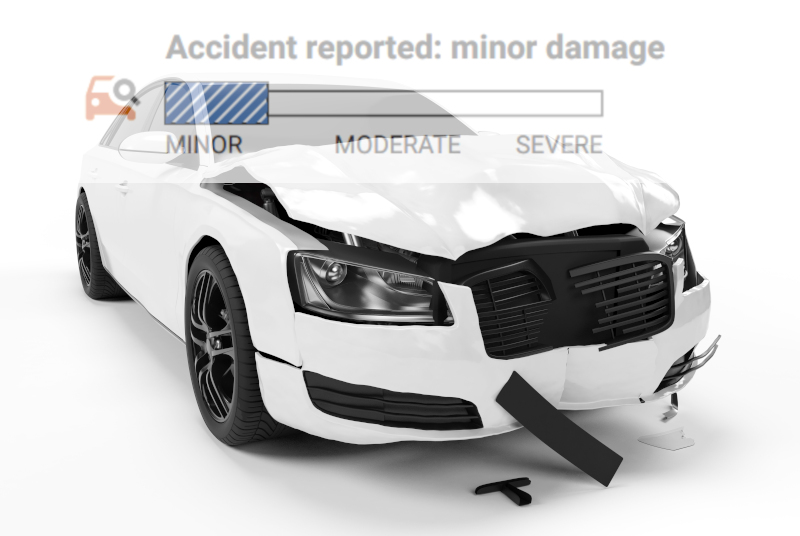
Carfax Reports: Why They Can Be Super Frustrating for Diminished Value Appraisers
In the world of automobile insurance claims, diminished value appraisers play a crucial role. We’re the folks who figure out how much less your car is worth after an accident. And guess what? We often rely on Carfax reports to do our job. But here’s the kicker: those reports can be wildly inaccurate. I’ve spent my fair share of time digging into vehicle histories and police reports, and let me tell you, the gap between what Carfax says and the real story can be maddening. In this article, I’m going to take you through the rollercoaster of dealing with these wonky Carfax reports and how they mess with the automotive industry.
The Discrepancies Revealed
Picture this: Carfax reports waving the “minor damage” flag left and right, even when the repairs are more extensive than a home renovation. It’s like they have a “minor damage” stamp they just can’t stop using. The weird part? The official police reports tell a completely different tale. Nowhere in those official documents do you find the word “minor.” So, what’s the deal? It seems like the folks at Carfax might be a bit too trigger-happy with the “minor” label, not giving a hoot about what actually went down.
But it gets wilder. You’ve got cars that have undergone repairs that make your wallet weep—think repairs north of $20,000, with some serious frame-fixing action. And what does Carfax say? “Minor damage,” of course! They even define it as “usually cosmetic, including dents or scratches to the vehicle body.” That’s like saying a hurricane is just a bit of windy weather. This messes with our heads, especially when we’re trying to give an accurate value for a vehicle.
The Headaches for Auto Pros
Carfax reports are the holy grail for many folks in the auto business. Sales managers and dealerships swear by them when they’re figuring out what a car is worth. But the problem is, these reports can be about as reliable as a dollar store umbrella. When pros put all their trust in Carfax, they’re essentially building their decisions on shaky ground. That can lead to some major mess-ups, like overpricing or underpricing vehicles, which nobody wants.
And let me tell you, it’s not a pretty sight when we, the appraisers, come along with our facts and figures backed by police reports and repair data. Sales managers who’ve had a love affair with Carfax often react like someone just pulled the rug out from under them. They can’t believe that their beloved Carfax reports have been leading them astray. It’s a trust crisis within the industry.
A Solution: Meet Autocheck
If you’re out there hunting for a new set of wheels and you want the real scoop on a car’s history, here’s my advice: throw an Autocheck report into the mix alongside your Carfax. Autocheck often spills the beans on stuff Carfax misses and vice versa. By cross-referencing info from both reports, you’ll be better equipped to make a wise decision about that dream car you’re eyeing.
The Need for a Shake-Up
Dealing with these Carfax hiccups isn’t just our problem; it’s everyone’s. Carfax needs to up its game when it comes to accuracy. They’ve got to make sure their data entry crew is on point. Implementing some checks and balances, like comparing their info to official docs, could be a game-changer.
But it’s not all on Carfax. We all need to spread the word in the auto community about these wonky reports. Pros should know that Carfax isn’t the be-all and end-all. It’s like relying on one news source; you’ll get a skewed picture. Instead, we should be encouraging appraisers, sales managers, and buyers to dig deeper, look at multiple sources, inspect the vehicle thoroughly, and do their homework before making big decisions based solely on a vehicle history report.
Conclusion
Being a diminished value appraiser means swimming in the deep end of vehicle histories and repair assessments, but the saga of Carfax reports adds a whole new layer of complexity. The gap between the “minor damage” label and the real extent of repairs messes with our heads and can lead to some serious financial mix-ups and trust issues in the industry.
The fix? It’s a group effort. Carfax needs to step up its game, and we all need to wise up about the limitations of relying solely on their reports. By working together, we can steer the auto industry toward a more transparent and reliable system of reporting vehicle history. That way, everyone can make decisions with confidence in this ever-evolving automotive landscape.